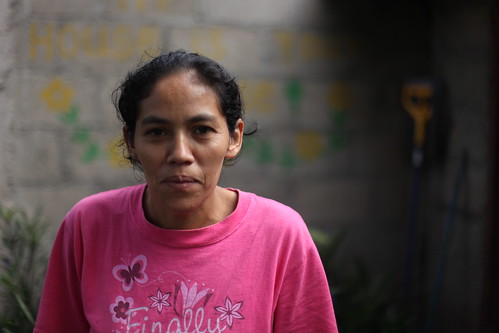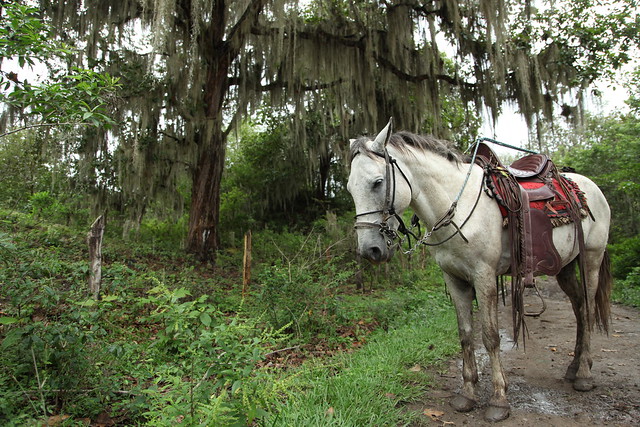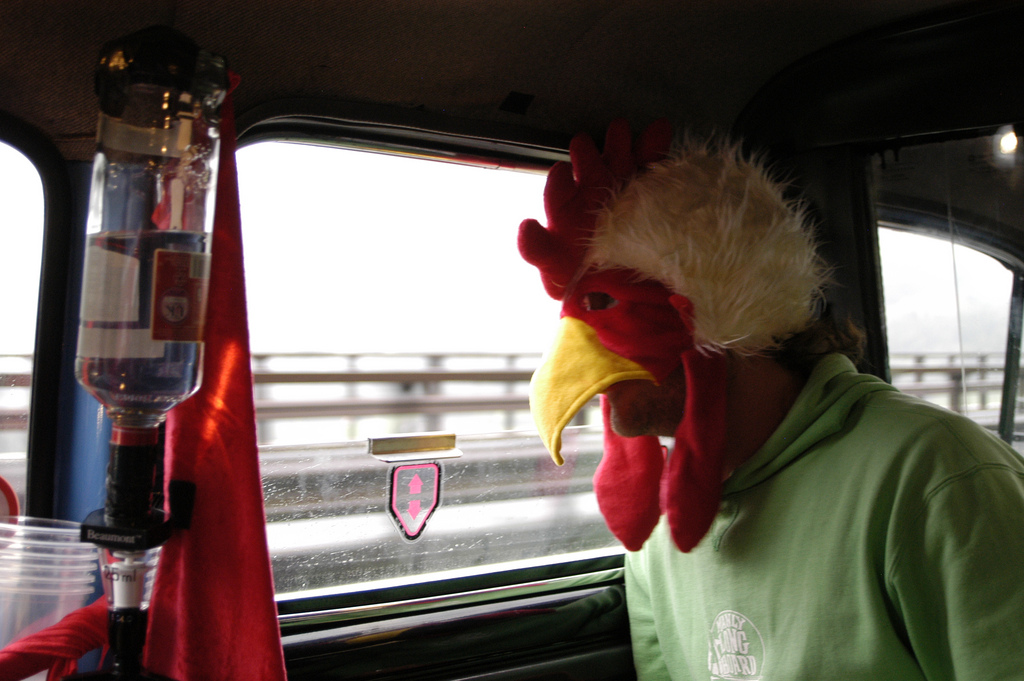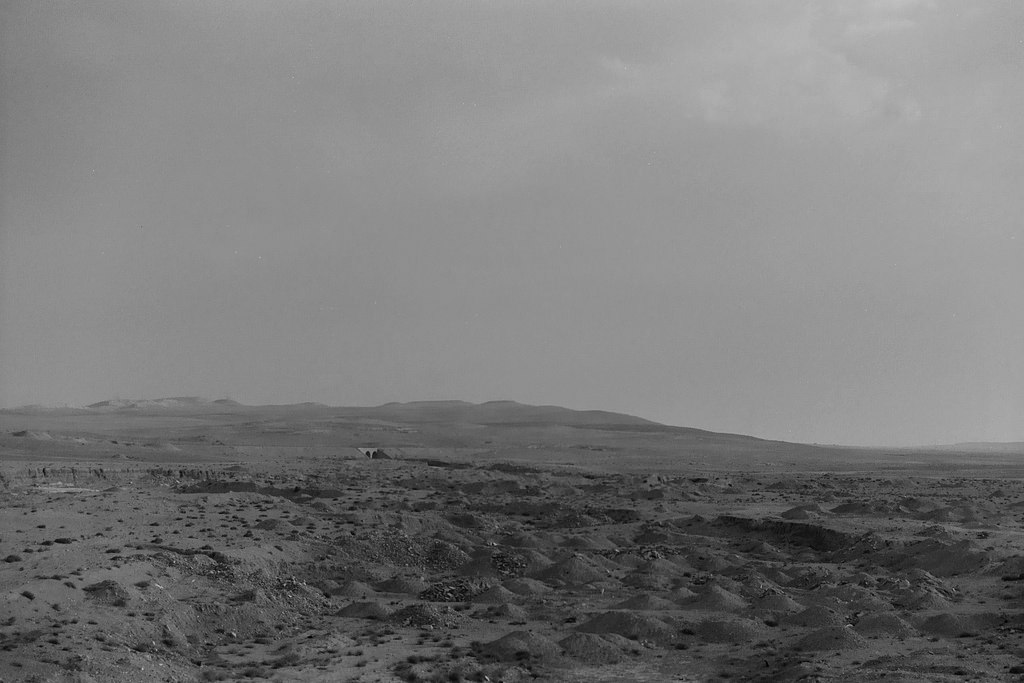Note: Following the previous post from Los Zorros, in the northwest of Nicaragua, we travelled by bus to Estelí, in the more central northern region of highlands that border Honduras.
We followed instructions for where to catch buses from Estelí to Miraflor but were doubtful and uncomfortable when we got there. It was 05:15 and this place wasn’t much of a bus stop. “Pulperia Miraflor” was just a fish shop with no sign for buses, no shelter, just a couple of locals standing around with hard looks, and an annoying drunk who should have stumbled home hours earlier. Then that ubiquitous public transport of Central America, an old US school bus, gurgled to a halt alongside us. It filled instantly and we only managed to grab the wheelarch. But soon we were way off the Panamerica Highway that runs through Estelí, and were bouncing down a track only suitable for 4x4s.
We guessed our way to the right stop, where a boy led us on foot up a muddy path staged by rickety gates. He then took us through a tunnel of palm fronds into a neatly trimmed kitchen-garden full of flowers, bushes and fruit trees in every colour. At its end was a simple house built from breeze blocks and bricks, with a large patio and a palm-thatched gazebo housing a couple of hammocks. This was Finca Linda Vista, our home for the night. A guest room with attached shower and toilet had been built on the back of the house for tourists like us. It was dark and basic but it was peaceful. The site overlooked a richly forested valley where, for the duration of our stay, clouds hung on the opposite slopes and covered the sky.
We had collected two more people on the way, after running into the German couple, Jonas and Jana, that we’d spent time with back in Los Zorros a few days earlier. We soon learned that their tour was supposed to have started further into the mountains so they should have stayed on the bus. Nevertheless, our host Lucia Rodolfo didn’t speak any English but he was keen to communicate and we understood the gist of his frequent talking as he led us by foot around the area. We descended into a canyon before scrambling and climbing alongside a stream that climbed up through three consecutive waterfalls. At the last falls we found Mario and the Germans, who we joined for much of the rest of the day. We swam and jumped through the falling water into the shallow plunge pool below. Our host Lucia at her home Rodolfo, our guide Rodolfo named many different bird species, spiders, crops and trees, described the area during the recent war, and explained the medicinal uses of many plants. He plucked fruit from trees, and herbs and vegetables from gardens, and we tasted them all. He pointed at some flowers and explained that they were called Flores Amarillas (Yellow Flowers), then at a bird that he called Pecho Amarillo (Yellow Chest). Then he thoughtfully concluded that most of the flora and fauna were pretty much named as you see them. The Miraflor reserve is a circus of wildlife. When naming various birds and insects, Rodolfo would say “Hay mucha variadad”, as was evident from the constant flickers of movement and colour around us. Leafcutter ants marched across our path, carrying sections of leaves in their mandibles like a flotilla of green sails. All kinds of wasps and bees, some as small as grains of sand, were constructing nests in the trees. Brightly coloured birds were in abundance. Cacti, ferns and palms mingled with plants that looked like they belonged in far cooler climates. We walked most of the day, with brief stints of drizzle passing through, and clouds occasionally descending to engulf us. Back at Lucia’s we lounged on the patio and in the hammocks, playing with the family’s tiny puppy and their two-and-a-half-year-old girl, Miley, with eyes like brown planets and a curious, chattering, happy nature. The ladies and girls of the family talked and laughed in the house and the sound rolled out onto the patio. Then, after the cloud-filled air turned dark, Lucia hired us to chop vegetables in her kitchen and we were finally able to be part of the family, not just spoiled guests. Her whole house was sparse, just bare walls and a few functional items like a fridge and a cot. The kitchen had a large stone sink on one wall and a wooden sideboard on the other. At one end, they had constructed a concrete plinth on which to mount a cooker made of earthen bricks, open at one end for sliding branches of wood in to fuel the flames, and open at the top to rest the pan on. With just this one simple feature and a single pan, she cooked delicious meals of empanadas, stews, salads and, of course, tortillas and Gayo Pinto (rice and beans). Miley and her fathomless eyes Lucia joined us for dinner and we talked for an hour or more about our lives. Tourists stayed with her often but few spoke Spanish so she was happy to be able to communicate. She told us how she’d married young, like most of the locals, to a boy from nearby. She was a few months into college when she became pregnant and her education was forever cut short. Her husband Nicolás was the man who had arranged our visit for us back at the Treehuggers[link] non-profit tourist office down in Estelí, where he spent most of his time. He had also been in the US for three years, having been smuggled in on a container ship, working illegally to bring some cash to the family. Now, she said, things were different for her granddaughter’s generation… As she spoke, one hundred miles an hour for perhaps twenty mintues in one go, my eyes began to roll. She didn’t notice, her connection was mostly with Maeve, a fellow woman with a good grasp of her language. Finally we both retired to bed and were falling asleep before 20:30. Rodolfo arrived at the finca with three horses the next morning. They were all small and slim but they looked healthy. Rodolfo rode his young son’s horse, Sanate, named after a local bird with feathers the same colour as the horse, black. I was on a white horse, Palomo, that was probably normal size for Nica people but I made it look like I was riding a Great Dane. Maeve rode a brown horse, Asabache. As we mounted for the first time, Rodolfo gestured to Palomo and said that he was “bravo”. I guessed this didn’t just translate as “brave” but also “bold” or “cocky”, and now I know it does. Palomo took the lead immediately. There was no time to get accustomed to the mount, as our first few steps were down the steep slope off the finca, slipping and squelching in deep mud. Palomo and Asabache kept pressing each other forward in a constant competition. No sooner were we out onto the dirt road than they both broke into an awkward trot, bouncing us to either side of the saddle. Then a trot became a canter, then a gallop. Thus we fought for the lead of our little convoy for four hours, frequently lurching forward and racing each other. Most of the time we let the horses go for it, reaching a full gallop alongside each other, with our heads held high, grinning into the wind. Rodolfo and three generations of his family, on his parents’ porch The road led us through a strange world of trees covered in a parasite that hung from each one like a million whisps of falling water. The locals call it Barba Vieja (“Old Beard”). Climbing higher still, the trees changed again to a forest of Cypress trees. We were ascending from 800 to 1600m, from the lowest of three communities, El Parto De Abajo, through the Parto Intermedio to the highest community, El Parto Alto. All three are connected by a co-operative, with different fincas making different produce for sale down in the city, and the revenue returning to the community. My horse Palomo by an “Old Beard” tree We drew our horses up at Finca La Soñada and were instantly treated to a fresh, healthy lunch with real juices. The finca was surrounded by small batches of many different crops, including maize, cabbages, coffee and bananas. It was set in a clearing, overlooking a dark, dripping rainforest full of ferns, flowers and towering giants of trees. As I type this, seated on a handmade stool on the patio, facing out at the forest, I wonder where in those trees the strange and elusive quetzal is lurking. Note: the piece below was written just after the one above. Then I went to bed. Maeve and I made ourselves comfortable in our damp little cabaña and bid each other goodnight. Then we saw the time. It was something like 19:15. It was insanely early. Then we realised we didn’t care. We fell straight to sleep. However, I woke in the dark a few hours later and stumbled out across a slippery path in the pouring rain to vomit violently into the toilet. I was sick again in the pre-dawn fog before we walked across the fields to catch the bus back to Estelí, where we took a whole day to stay in our hotel room, watching Game of Thrones on my laptop and taking turns for diarrhetic trips to the ensuite loo. Today and yesterday we found ourselves left alone, on two different patios in two different parts of the northern highlands of Nicaragua. There are probably other tourists in the area but we haven’t seen any. Even in high season, which this certainly isn’t, we are still well off the main backpacker trail. We were left alone with the uncountable different calls of birds in the forest before us. Bliss, right? But it was hard to indulge in the solitude, the downtime. I felt listless, I think Maeve did too. Somewhere in that frustrating sense of discomfort there were both tiredness, from the efforts of adventurous travel, and boredom. Somewhere the two overlapped and their borders drifted throughout the afternoons. In any case I don’t want to pretend it was all exhaustion, we get bored too, everyone gets bored eventually, even in paradise. We were not left for days, stuck with nothing but the torment of our lonely brains. We just had a few hours to kill now and then. Maeve had a good book and I had my mobile and keyboard, for writing, and a notebook for scrawling. It felt embarrassing to address the thought that we could be so easily bored in the first place, or that we might need such tools to amuse ourselves. But it’s true, there it is. I wanted to forget the guilt and explore the state of mind. As I type, I am seated on a plastic chair on one of those patios, at Finca La Soñada. I am a little tired from a half-day on horseback followed by some trudging on foot through mud but some local coffee has taken the edge off that. My toes are overhanging the edge of the patio, jutting into a lush plantation full of lime, coffee and banana, where chickens are roaming. Beyond that is a meadow that slopes gently down before reaching the trees that stretch out across the other side of the valley, densely muddled together. It is rich cloud forest, decorated by the passing flight of many different bird species and accompanied by their calls. I have no right to be bored. My little writing station in the Miraflor cloud forest Stuck, so to say, with nothing to do, I put my keyboard away for a bit and just sat there. I half wanted to put my head in my hands and fall asleep. Maeve in fact took herself off to our cabaña, presumably to snooze, although she has the added excuse of not feeling well. Anyway, she can do what she wants, we are on holiday. I forget. I feel guilty. I can’t let go. We’ve only been away for a week so perhaps I’m still winding down, it’s hard to say, especially when that week feels like a month or more. Whatever the context, it was there, that listlessness. But when I finally lifted my head and just sat, accepting that I had no other option, all that angst somehow melted and, for a brief time, my mind was free. Almost ironically I then began to think of things I wanted to write about, when I couldn’t before. I gave into the compulsion and wrote this. But I’ve noted the thought now, I will go back to sitting, just sitting, with nothing but me and the wide world. See the Flickr album: Northern Highlands


Climbing Through the Forest on Horseback


Boredom in Paradise

References





Leave A Comment